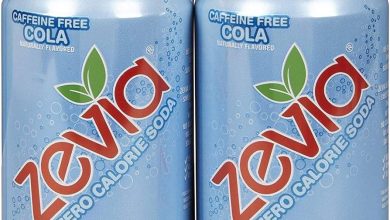English Muffins (Plain, Unenriched, Whole Wheat, and Sourdough Varieties)
English muffins are a beloved breakfast staple, offering a light, slightly chewy texture with a mild flavor profile. Available in different variations, including plain, unenriched, whole wheat, and sourdough, these versatile muffins can be toasted to golden perfection, making them ideal for both savory and sweet toppings. They are a great addition to any meal and a delightful base for sandwiches or as an accompaniment to eggs, bacon, or jam.
Nutritional Information (Per Serving, 1 Muffin):
| Nutrient | Amount |
|---|---|
| Energy | 235.0 kcal |
| Protein | 7.7 g |
| Fat | 1.8 g |
| Saturated Fat | 0.259 g |
| Carbohydrates | 46.0 g |
| Fiber | 2.7 g |
| Sugar | 0.0 g |
| Calcium | 174.0 mg |
| Iron | 0.89 mg |
| Magnesium | 21.0 mg |
| Phosphorus | 133.0 mg |
| Potassium | 131.0 mg |
| Sodium | 464.0 mg |
| Zinc | 0.7 mg |
| Copper | 0.129 mcg |
| Manganese | 0.357 mg |
| Selenium | 0.0 mcg |
| Vitamin C | 0.0 mg |
| Thiamine (Vitamin B1) | 0.181 mg |
| Riboflavin (Vitamin B2) | 0.154 mg |
| Niacin (Vitamin B3) | 1.566 mg |
| Vitamin B6 | 0.043 mg |
| Folate (Vitamin B9) | 37.0 mcg |
| Vitamin B12 | 0.04 mcg |
| Vitamin A | 0.0 mcg |
| Vitamin E | 0.0 mg |
| Vitamin D2 | 0.0 mcg |
Allergen Information:
English muffins typically contain wheat and may include other allergens depending on the specific recipe and added ingredients. It’s important to check the product label for detailed allergen information, particularly for dairy (milk), eggs, and gluten, which are commonly found in many commercial English muffin varieties. If you’re making them from scratch or purchasing from specialty bakeries, some variations might also accommodate specific dietary needs such as gluten-free or vegan options.
Dietary Preferences:
- Vegetarian-Friendly: Most plain, unenriched, and whole wheat English muffins are suitable for vegetarians. If you’re following a vegan diet, check for dairy or egg ingredients.
- Vegan: Sourdough English muffins may be a better option for those following a plant-based diet, as they typically do not contain any animal-derived products.
- Gluten-Free Options: While traditional English muffins contain gluten, there are gluten-free versions available for those with gluten sensitivities or celiac disease.
- Low-Sodium Diet: Be mindful of the sodium content, especially if you’re managing high blood pressure or other cardiovascular conditions. Opt for low-sodium varieties when available.
Tips & Advice:
For the perfect English muffin, consider lightly toasting it to bring out its crisp edges while maintaining a soft, airy interior. You can top it with a variety of spreads, such as butter, jam, or even savory options like scrambled eggs, cheese, or smoked salmon. English muffins are also perfect for mini sandwiches or can be served alongside soups or salads for a more substantial meal.
Conclusion:
Whether you enjoy them plain, whole wheat, or with the distinctive tang of sourdough, English muffins remain a classic and versatile choice for breakfast or any time of day. With a healthy balance of protein, fiber, and essential vitamins and minerals, they can be part of a nutritious and delicious meal. For those with dietary restrictions, there are plenty of alternatives available to ensure that everyone can enjoy this iconic baked good.










